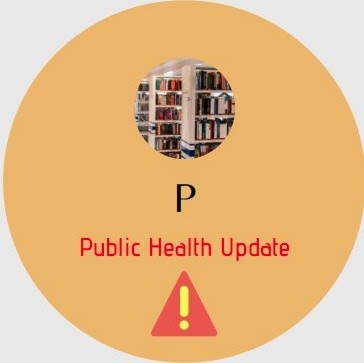#Surveillance for #human #infections with avian #influenza A(#H5) viruses: objectives, case #definitions, #testing and reporting (#WHO), https://etidiohnew.blogspot.com/2025/04/surveillance-for-human-infections-with.html

#Surveillance for #human #infections with avian #influenza A(#H5) viruses: objectives, case #definitions, #testing and reporting (#WHO), https://etidiohnew.blogspot.com/2025/04/surveillance-for-human-infections-with.html

How do you define lying? Here are some examples to consider, which you may or may not believe count as lies:
1. Saying something untrue sarcastically
2. Saying something true sarcastically, convincing others it's untrue
3. Dancing around a question to imply an untrue answer, while only saying true things
4. "I've got a school project and I need to ask you some questions" (both true, but implying a connection that doesn't exist)
#Trump’s #definitions of “#male” and “#female” are #nonsense #science with staggering #ramifications
“How can you so fully #misunderstand #basic #human #biology, and then #legislate about it?”
Trump’s #Definitions of “#Male” and “#Female” Are #Nonsense, not #Science With Staggering #Ramifications
“How can you so fully misunderstand basic #human #biology, and then #legislate about it?”
"Oversight" is a weird word. It means two things that are the opposite of each other.
Think of a mathematical definition as having two sides: a user side and a verification side.
The verification side is what you usually see in a book or paper: a minimalistic description that makes it as easy as possible to verify that a certain mathematical object has property X.
The user side is usually presented in form of one or more theorems that follow the verification side. They provide the rich mental image you need to have in mind to think of property X or use it in a mathematical argument — its real nature, so to speak.
For, example a dense subset \( D \subseteq \mathbb R \) is defined by the property that if there are two different elements \( x \) and \( y \) in \( D \), then there is a third one between them. This is the verification side. The user side is: If there are two different elements \( x \) and \( y \) in \( D \), then there are infinitely many others between them!
"It was of the utmost importance to me that people in western Europe should see the Soviet regime for what it really was. Since 1930 I had seen little evidence that the USSR was progressing towards anything that one could truly call Socialism. On the contrary, I was struck by clear signs of its transformation into a hierarchical society, in which the rulers have no more reason to give up their power than any other ruling class."
George Orwell, Animal Farm preface, 1945
Is white space really a "character"?
Google tests message around "get definitions and translations as you search. Select words to get definitions & translations without leaving the page" https://www.seroundtable.com/google-get-definitions-and-translations-as-you-search-37732.html via @punit6008 (this is an old one, I didn't publish until several weeks later)